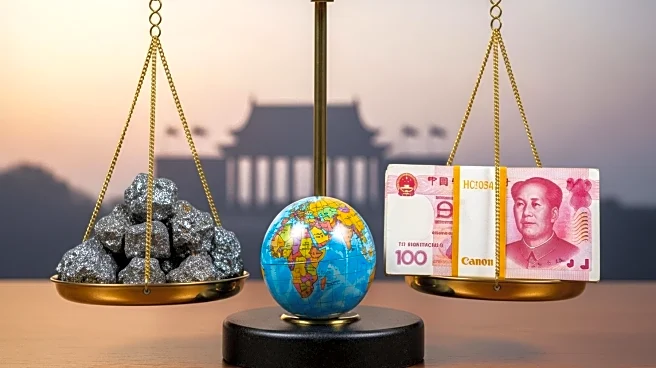What's Happening?
President Trump has announced a new 100% tariff on Chinese goods, alongside export controls on critical software, in response to China's recent rare earth export restrictions. The Chinese Ministry of Commerce had earlier mandated foreign companies to obtain special approval for exporting products containing rare earth materials. These materials are crucial for chip fabrication and electronics manufacturing, and the U.S. relies heavily on Chinese exports for its supply. The announcement was made on Trump's social media platform, Truth Social, where he criticized China's aggressive trade stance. The Chinese government responded, stating it does not seek a trade war but is prepared to defend its interests.
Why It's Important?
The imposition of tariffs and export controls by the U.S. could significantly impact the semiconductor industry, which is a priority for the Trump administration. The U.S. aims to boost domestic chip production to reduce reliance on foreign manufacturers. However, the restrictions on rare earth materials, essential for chip production, pose a challenge to these goals. The ongoing trade tensions between the U.S. and China could lead to further economic instability, affecting global markets and industries reliant on these materials.
What's Next?
The situation may evolve as both nations navigate the trade dispute. The U.S. could potentially negotiate with China to ease tensions, as indicated by Trump's comments suggesting room for negotiation. The semiconductor industry and other stakeholders will closely monitor developments, as any resolution or escalation could have significant implications for global supply chains and economic relations.
Beyond the Headlines
The trade dispute highlights the geopolitical complexities of resource dependency and international trade agreements. The ethical and strategic dimensions of relying on foreign nations for critical materials are underscored, prompting discussions on national security and economic independence.









